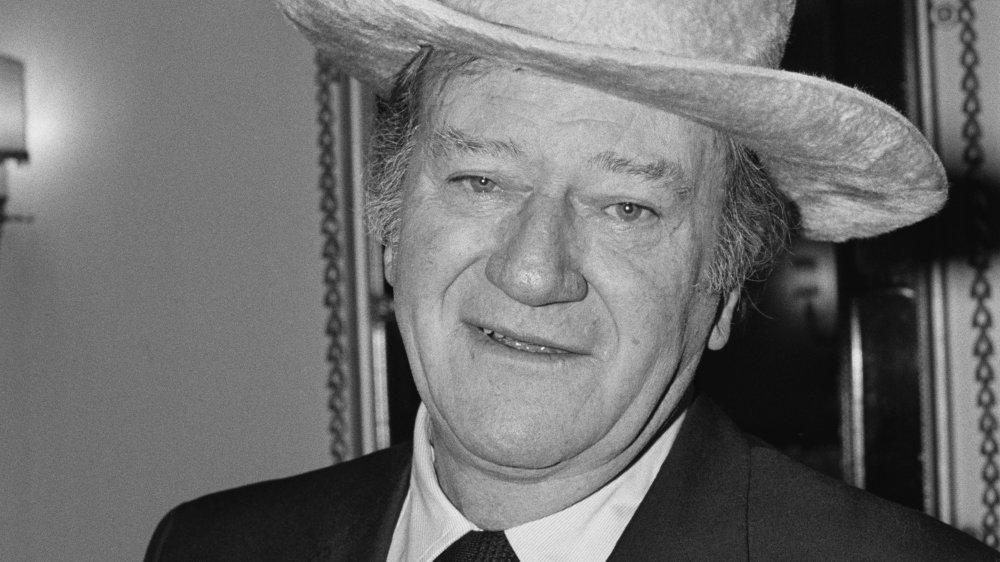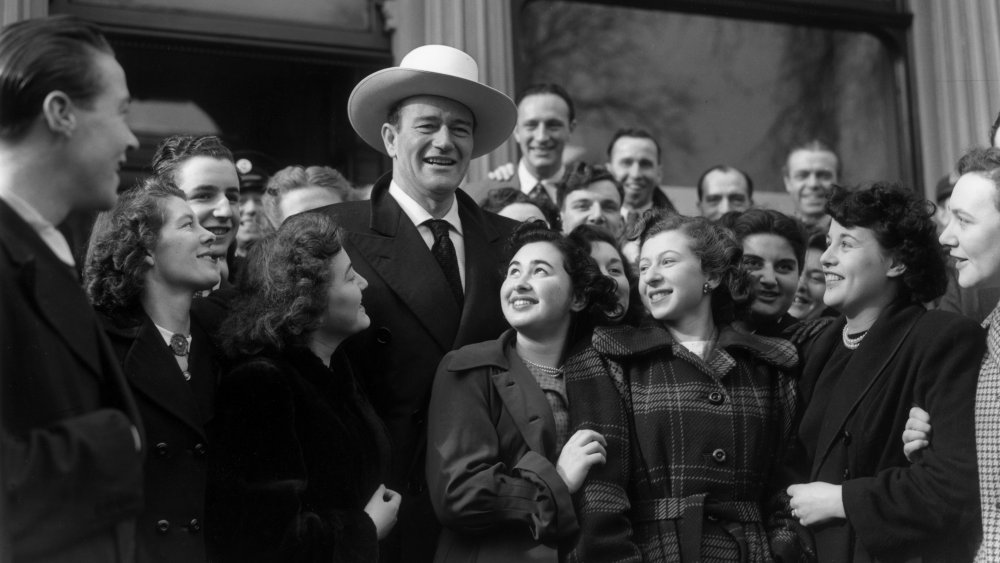How John Wayne Got His Iconic Name
John Wayne was famous for delivering a fairly predictable cinematic product: manly men of few words and much action, often incarnated within the context of mythic representation of what people wanted to believe the American Old West was really like. His first films were Westerns, and so was his last, The Shootist, playing an aged gunfighter dying of cancer, as Wayne himself did two years later. But could the heroes of The Alamo, The Man Who Shot Liberty Valance, and The Searchers been as popular as — Marion Morrison? We'll never know. As Biography tells us, Marion, who'd worked his way up from minor construction duties for film studios into bit parts, wasn't someone director Raoul Walsh, already a Hollywood veteran, per Britannica, wanted on the marquee for The Big Trail. Maybe Morrison suggested Walsh call him "Duke," since maybe that was a little more studly sounding than "Marion" and had in fact been his childhood nickname — as well as that of his dog. (And we can hear Dr. Henry Jones Sr. informing us, "We named the dog Indiana.") To be fair, the kid was Big Duke and the dog was Little Duke. Still, Duke.
Would Marion Morrison have had the same fan base as John Wayne?
The Big Trail in 1930 was Marion's first leading role. He was all of 23 years old and had been slogging his way toward something resembling a film career since dropping out of college when an injury ended his football scholarship. Walsh is generally credited with changing Marion's name. The director was spending off-moments reading a biography of Revolutionary War General "Mad Anthony" Wayne during the shoot; Marion was friends with another movie upstart, John Ford. Marion chose John, Walsh chose Wayne, and a star — wasn't quite born. Although The Big Trail was something of an epic for the time, it was a dud, and now-John Wayne labored for nearly 10 years in low-budget westerns, even a series portraying a singing cowboy named Sandy. "John Wayne" became synonymous with a movie stereotype, coupled with Marion/John's outspoken conservative political views. An Academy Award awaited him for 1969's True Grit, and through it all, his good friends still called him Duke. Not Marion.

